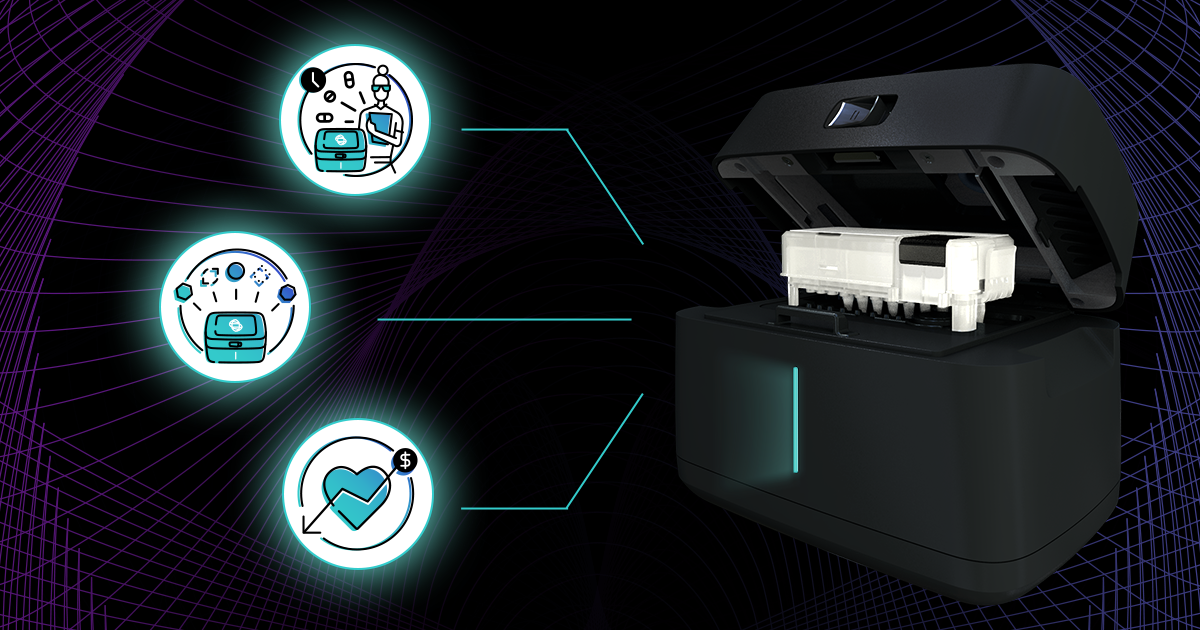.png)
Written By: Biomeme Staff
This is a very common question, so let’s get straight to it.
There are 2 kinds of tests available for COVID-19:
For this article, let’s focus on Direct Detection tests that use specimens collected from your nose (nasopharyngeal, nasal) or your mouth (oropharyngeal, saliva) and there are 2 types available:
Before determining which type of test is right for you and your situation, you’ll want to ask yourself some questions.
Need to make a decision quickly? Jump ahead to our infographic.
If you need results super-fast, like pizza delivery fast (30 minutes or less), you are limited to antigen or lower sensitivity rapid molecular tests. Remember that antigen and rapid molecular tests are not as sensitive so it might not detect the virus if you are asymptomatic (no symptoms) or pre-symptomatic (before symptoms develop), and you likely will need to confirm the test result with a more sensitive molecular test per your healthcare provider’s recommendation.
If you need results in 1-2 hours, you can explore on-site testing options that utilize something similar to Biomeme’s molecular testing solution that utilizes portable thermocyclers and lab grade RT-PCR tests. This type of solution is usually deployed in partnership with CLIA laboratory networks approved for high complexity testing, like One Health Labs.
If you can wait 24-72 hours for your results, search for laboratories in your area that offer molecular testing using FDA emergency use authorized tests. Samples typically need to be transferred to the lab where they are tested in batches (e.g. 96+ samples at a time) and because of this, turnaround times tend to be longer. With that said, your test results are typically much more reliable due to the high sensitivity of the molecular test being used. Not every lab or test is created equal, so be sure to ask the lab if the test they are using is FDA emergency use authorized and detects all the Variants of Concern.
If the answer is NO, then try and avoid rapid antigen and rapid molecular testing with lower sensitivity. Focus on molecular testing options available to you in your area, such as RT-PCR tests.
If the answer is YES, you’ll want to move forward with a highly sensitive molecular RT-PCR test that detects multiple SARS-CoV-2 gene sequences. The FDA advises clinical laboratories to be aware that tests that detect multiple genetic targets are less likely to be impacted by genetic variants. Consider asking your lab if their test detects multiple viral gene targets and has been confirmed to detect all of the CDC’s Variants of Concern.
If you’re interested in differentiating which SARS-CoV-2 mutation is present, learn more about our upcoming SARS-CoV-2 Mutation Panel 1.0 coming in Summer 2021.
Generally speaking, the higher the throughput of a testing platform, the more capable it is of processing a larger number of samples simultaneously.
If you are looking for highly sensitive testing for 50-1,000 people a day and need same-day results, then see if there is anything similar to One Health Labs in your area to see if they can do on-site or off-site testing for your staff.
If you’re a K-12 school or summer camp looking to reopen, then you may want to consider 24-hour turnaround pooled surveillance testing provided by Concentric by Ginkgo Bioworks. This service provides highly sensitive molecular RT-PCR testing through local labs offering well-validated testing services to surrounding K-12 school districts.
If you need to test in various locations and don’t have access to electricity, then a hand-held, battery-powered portable system like Biomeme’s RT-PCR Franklin Thermocycler is right for you.
Still unsure of which test is right for your situation? Use our short infographic below to make the decision easy.

Get the latest tips from Biomeme shipped right to your inbox

Host response testing allows physicians to quickly rule out entire categories of potential infection to narrow their focus to the likely culprits for an illness. This can enable physicians to make...
401 North Broad St Suite 222 Philadelphia, PA 19108